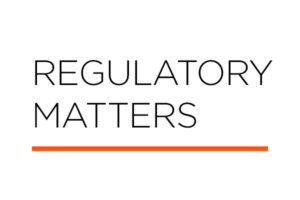 On July 13, 2023, the Oversight and Investigations Subcommittee of the House Committee on Financial Services held a hearing on the proxy advisor industry. Below is the oral statement of Eric Shostal, Glass Lewis’ Senior Vice President of Research and Engagement, from that hearing. Glass Lewis’ full, written testimony is available here.
On July 13, 2023, the Oversight and Investigations Subcommittee of the House Committee on Financial Services held a hearing on the proxy advisor industry. Below is the oral statement of Eric Shostal, Glass Lewis’ Senior Vice President of Research and Engagement, from that hearing. Glass Lewis’ full, written testimony is available here.
***
Chairman Huizenga, Ranking Member Green, and Members of the Subcommittee:
I appreciate the opportunity to testify here today on behalf of Glass Lewis. My name is Eric Shostal and I am Glass Lewis’ Senior Vice President for Research and Engagement.
Glass Lewis was founded in 2003 to provide competition in the proxy research and voting industry. We are proud to have grown into a company that now serves more than 1300 institutional investors globally. Glass Lewis is not a political or an advocacy organization. We are a business that helps our clients, sophisticated institutions that own or manage shares in companies, to make voting decisions in an efficient and effective manner. Glass Lewis is committed to adhering, at all times, to the high standards associated with our fiduciary duty to our institutional investor clients.
Proxy voting is the means by which shareholders have a say in the companies they own. It is a fundamental, longstanding part of the system of corporate law that has served this country so well.
No one is required to hire a proxy advisor. Institutional investors often do so because it makes more sense for them to outsource the task of reading and analyzing the proxy statements of the potentially thousands of companies they are asked to vote on each year. This lowers their costs, while allowing them to be prudent stewards and mitigate risks to their beneficiaries or end clients, who may be pension plan participants or retail investors saving for college or retirement.
I came to Glass Lewis to lead its research efforts about three years ago, after spending a part of my career as a stewardship professional on the institutional investor side. Serving as the head of the Research team at Glass Lewis has been an extraordinary privilege. I work alongside some of the most hard-working, experienced, and talented colleagues I have come across in my nearly 20 years in corporate governance. Having just completed my third US proxy season in this role, I am in awe of their skills, work ethic, and dedication to our mission.
This past year has seen an organized campaign to push back on shareholders’ votes on environmental, social and, to a lesser extent, governance shareholder proposals. To be clear, we do not file shareholder proposals and have no control over what types of proposals shareholders submit. Nor do we decide which shareholder proposals go to a vote. That is a process governed by the SEC, which has allowed more of what are sometimes called E&S proposals onto companies’ ballots in recent years.
Even with this recent increase, however, shareholder proposals are about 1.3% of the proposals we provide research and analysis on each year. A subset of these relate to E&S issues. In recent years, the Glass Lewis benchmark policy has supported approximately 40-50% of such proposals.
Why do we sometimes support these proposals? We do so because many of our clients see those issues as material risk-return factors – factors that need to be considered by a prudent fiduciary to mitigate risk and promote the long-term economic interest of shareholders. As a state treasurer explained at a recent House hearing –
“This approach is backed by academic research, but it is also common-sense. Companies that value their workers have less turnover and higher productivity. Companies that build a strong governance structure will be more resilient and valuable over the long-term. Companies that prepare for changing weather patterns and changing market demands will be better protected from physical and transition risks.”
Consistent with this, our benchmark policy clearly explains, quote – “Glass Lewis evaluates all environmental and social issues through the lens of long-term shareholder value.” Unquote. Not politics, not wokeness, but shareholder value. Our benchmark policy and our record of recommendations under it are simply not consistent with the claims we are doing this to further some environmental or social agenda.
At the same time, I want to emphasize that much of the current debate rests on a basic misunderstanding about how proxy advisors work and what our benchmark policy is. No Glass Lewis client is required to vote under our benchmark policy and most, in fact, do not do so. Our benchmark policy is just one voting option our clients can choose. Because our clients do not all have the same investment strategies or views on proxy voting issues, Glass Lewis offers its clients a menu of voting options, from a Climate Policy to a Catholic Policy that reflects the unique fiduciary responsibility of Catholic institutions to a Corporate Governance focused policy for shareholders that are skeptical of the materiality of E&S issues. In fact, most of our clients use a custom voting policy that aligns their votes with their own firm’s views and investment strategies.
Our role is to provide objective research to help our clients vote as they see fit. We take that role seriously and are proud of the work we do for our clients.
Thank you again for the opportunity to be here today. I would be happy to answer any questions you may have.
